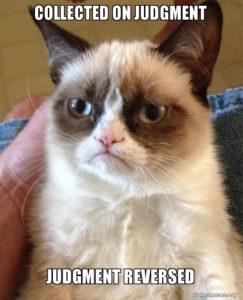 In The Art of War, Sun-Tzu famously described nine types of ground where battles could occur. In Medina v. Michelin North America, the Fifth Court reminded that summary judgment can only occur on the specified grounds, especially for a no-evidence motion:
In The Art of War, Sun-Tzu famously described nine types of ground where battles could occur. In Medina v. Michelin North America, the Fifth Court reminded that summary judgment can only occur on the specified grounds, especially for a no-evidence motion:
“Michelin’s only basis for no-evidence summary judgment motion on these claims was the lack or absence of expert testimony should the trial court grant its motion to exclude [plaintiff’s expert’s] testimony. The no-evidence motion itself specifically requested the trial court not consider the no-evidence summary judgment motion on these claims until it considered and ruled on its motion to exclude. In granting summary judgment on these claims after denying Michelin’s motion to exclude, however, the trial court necessarily concluded [that the expert’s] testimony constituted no evidence. Because Michelin did not move for summary judgment on this ground, the trial court erred in granting summary judgment on the Medinas’ defective design, defective manufacturing, and negligence claims once it denied Michelin’s motion to exclude this testimony.”
No. 05-16-00794-CV (Jan. 29, 2018) (mem. op.) I presented the oral argument in this case for the appellants.











